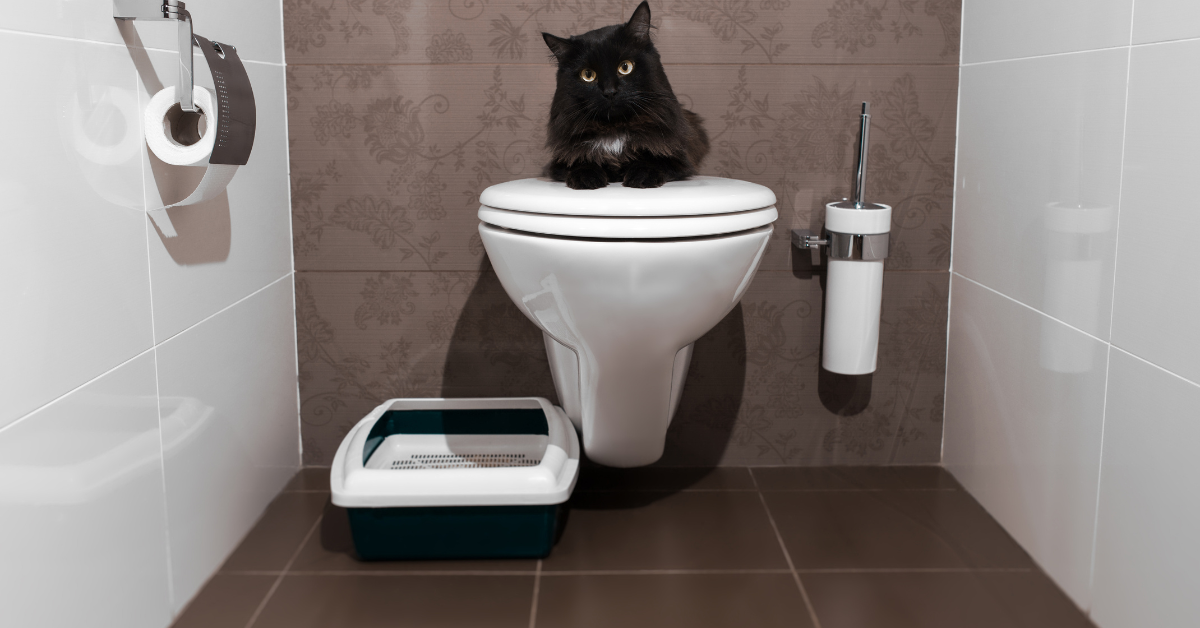Avoid Clogs and Damage: Don't Flush Cat Poop Down Your Toilet - Professional Recommendations
Avoid Clogs and Damage: Don't Flush Cat Poop Down Your Toilet - Professional Recommendations
Blog Article
Are you currently trying to locate content around Don’t flush cat feces down the toilet?

Introduction
As pet cat owners, it's necessary to be mindful of just how we dispose of our feline close friends' waste. While it might seem hassle-free to flush feline poop down the bathroom, this technique can have detrimental repercussions for both the environment and human health and wellness.
Alternatives to Flushing
Thankfully, there are much safer and more responsible methods to throw away pet cat poop. Take into consideration the following options:
1. Scoop and Dispose in Trash
One of the most usual technique of dealing with pet cat poop is to scoop it right into an eco-friendly bag and toss it in the garbage. Make sure to utilize a specialized trash scoop and dispose of the waste promptly.
2. Usage Biodegradable Litter
Select naturally degradable cat clutter made from products such as corn or wheat. These litters are eco-friendly and can be safely gotten rid of in the garbage.
3. Bury in the Yard
If you have a yard, consider burying pet cat waste in a marked location far from veggie gardens and water sources. Make sure to dig deep sufficient to avoid contamination of groundwater.
4. Set Up a Pet Waste Disposal System
Purchase a family pet waste disposal system particularly developed for cat waste. These systems use enzymes to break down the waste, reducing smell and ecological effect.
Health Risks
In addition to ecological worries, flushing cat waste can additionally present health threats to people. Cat feces might consist of Toxoplasma gondii, a parasite that can create toxoplasmosis-- a potentially extreme health problem, particularly for expectant women and people with damaged body immune systems.
Ecological Impact
Purging feline poop introduces harmful microorganisms and bloodsuckers right into the supply of water, posturing a considerable threat to marine environments. These contaminants can adversely impact marine life and concession water high quality.
Verdict
Accountable family pet possession expands beyond giving food and shelter-- it additionally entails correct waste monitoring. By avoiding purging pet cat poop down the commode and going with alternative disposal approaches, we can decrease our ecological footprint and safeguard human health.
Why You Should Never Flush Cat Poop Down the Toilet
A rose by any other name might smell as sweet, but not all poop is created equal. Toilets, and our sewage systems, are designed for human excrement, not animal waste. It might seem like it couldn’t hurt to toss cat feces into the loo, but it’s not a good idea to flush cat poop in the toilet.
First and foremost, assuming your cat uses a litter box, any waste is going to have litter on it. And even the smallest amount of litter can wreak havoc on plumbing.
Over time, small amounts build up, filling up your septic system. Most litter sold today is clumping; it is made from a type of clay that hardens when it gets wet. Ever tried to scrape old clumps from the bottom of a litter box? You know just how cement-hard it can get!
Now imagine just a small clump of that stuck in your pipes. A simple de-clogger like Drano isn’t going to cut it. And that means it’s going to cost you big time to fix it.
Parasitic Contamination
Believe it or not, your healthy kitty may be harboring a nasty parasite. Only cats excrete Toxoplasma in their feces. Yet it rarely causes serious health issues in the cats that are infected. Most people will be fine too if infected. Only pregnant women and people with compromised immune systems are at risk. (If you’ve ever heard how women who are expecting are excused from litter cleaning duty, Toxoplasma is why.)
But other animals may have a problem if infected with the parasite. And human water treatment systems aren’t designed to handle it. As a result, the systems don’t remove the parasite before discharging wastewater into local waterways. Fish, shellfish, and other marine life — otters in particular — are susceptible to toxoplasma. If exposed, most will end up with brain damage and many will die.
Depending on the species of fish, they may end up on someone’s fish hook and, ultimately on someone’s dinner plate. If that someone has a chronic illness, they’re at risk.
Skip the Toilet Training
We know there are folks out there who like to toilet train their cats. And we give them props, it takes a lot of work. But thanks to the toxoplasma, it’s not a good idea.

We are very fascinated by How to Dispose of Cat Poop and Litter Without Plastic Bags and I hope you liked the new entry. Do you know another person who is involved in the niche? Please feel free to share it. Many thanks for your time. Kindly check our blog back soon.
Click Here Report this page